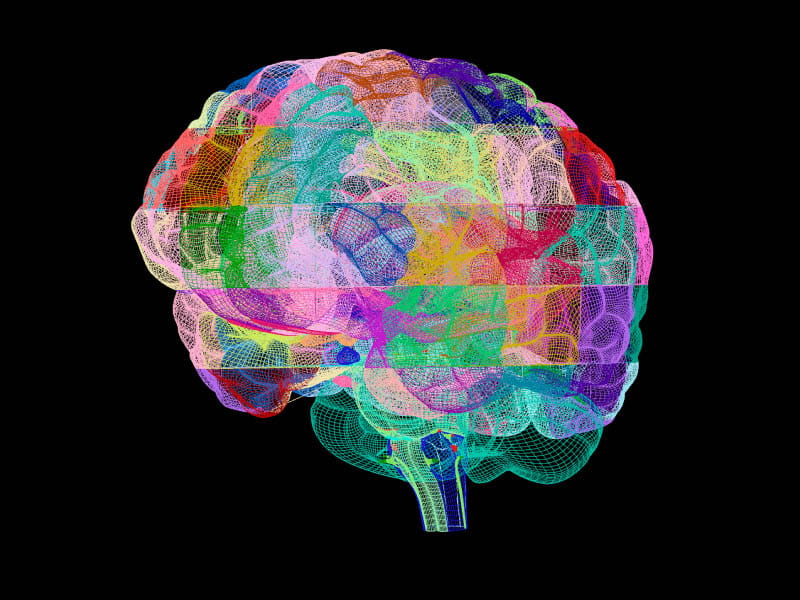When symptoms suggest a stroke, but it's something else
By Emily Halnon, American Heart Association News

What looks and feels like a stroke sometimes isn't. Instead, sudden weakness, difficulty speaking, vision changes, dizziness and other symptoms of a stroke might be caused by something else – a stroke mimic.
Conditions that mirror a stroke include seizure, migraine, psychiatric disorders, brain tumors, demyelinating diseases such as multiple sclerosis, and metabolic conditions such as hypoglycemia, or low blood sugar.
Stroke mimics account for about 1 in 4 stroke admissions, according to a 2021 review in the Journal of Clinical Neuroscience that analyzed 61 studies including more than 60,000 people. People with mimics are typically younger, more likely to be women, and have less severe symptoms than those having a stroke.
Considering the need for a focused evaluation and given the pressure of time to diagnose and treat a stroke – a leading cause of death and disability – it's no surprise that some conditions are mistaken for a stroke, said Dr. Enrique Leira, director of the Division of Cerebrovascular Diseases at the University of Iowa in Iowa City.
"If the alternative is missing or delaying treating a stroke because you're worrying about having the exact diagnosis, it's much better to be on the side of treating a stroke rapidly," he said. "As long as the CT scan does not show bleeding or a mass, it's very safe to treat a stroke mimic with the clot-busting medication doctors use against strokes."
Stroke mimics that do not show up on initial brain imaging often are not diagnosed until after the response to the stroke symptoms, when a neurologist tries to determine what type of stroke occurred, Leira said. "A stroke mimic diagnosis usually isn't made until after further evaluation and testing is done."
Neurologists will perform a clinical evaluation and look at imaging results from CT scans or MRIs to examine the brain and make a more precise diagnosis. Certain stroke mimics are easier to diagnose than others, Leira said. These include brain tumors or subdermal hematomas, which show up on CT scans, or low blood sugar, which can be diagnosed with a finger prick test. Other stroke mimics, such as seizures, migraines or psychiatric diseases, are more complex to diagnose and require clinical judgment, he said.
New research suggests the stroke mimic experience may be more traumatic than actually having a stroke. People with mimics may be more likely to develop posttraumatic stress disorder within a month than those with a confirmed stroke, according to a preliminary study being presented Feb. 7 at the American Stroke Association's International Stroke Conference in Phoenix.
Dr. Natalia Rost, chief of the stroke division at Massachusetts General Hospital in Boston, said she's curious about what preexisting conditions or factors could be linked to the findings.
She explained that one of the common causes of stroke mimics is functional neurological disorder, which can affect sensation or movement of the body as well as speech and vision. PTSD symptoms are common in people with these disorders, research shows. PTSD may even be a cause of functional neurological disorders, said Rost, who was not involved in the new study.
"I wonder what is the chicken and what is the egg here?" she said. "Folks who are vulnerable to psychological stress can experience stroke mimics, which could be the strongest connection to developing PTSD after a stroke mimic.
"But, the human brain is a mystery, and we're always trying to learn more about how it works," she said. "Notably, knowing more about prior history of stress or psychiatric disorders in individuals admitted for stroke assessment may shed light on key developments after the event."
Regardless of the eventual diagnosis, experts say someone experiencing stroke symptoms, which include face drooping, arm weakness and speech difficulty, should not waste time wondering whether it's a stroke or something else. Call 911 immediately, they say.
During a stroke, the blood supply to the brain is blocked, either because of a clot or bleeding in the brain. Rapid treatment can help get the blood flowing again and prevent brain damage and disability.
"Time is brain when it comes to strokes," Rost said. "With every passing minute, millions of brain cells die."





